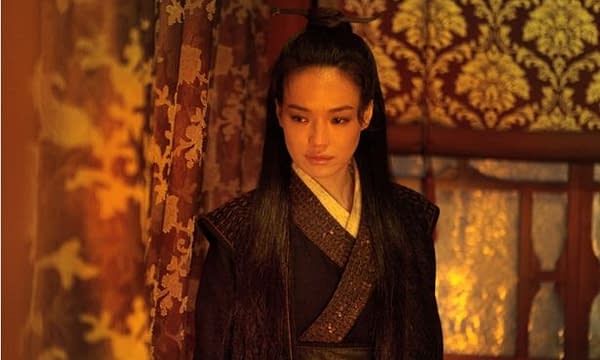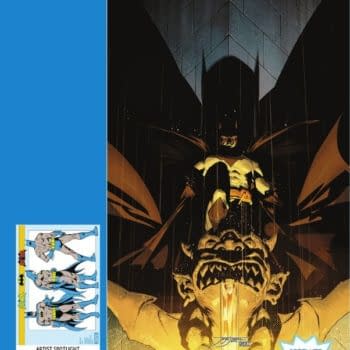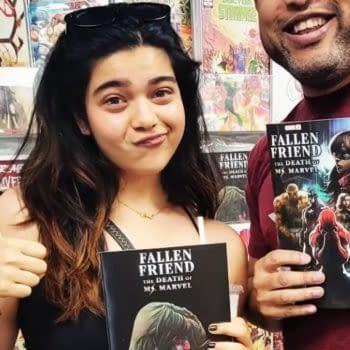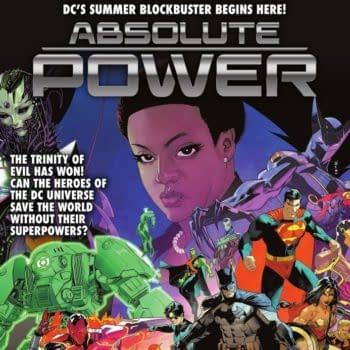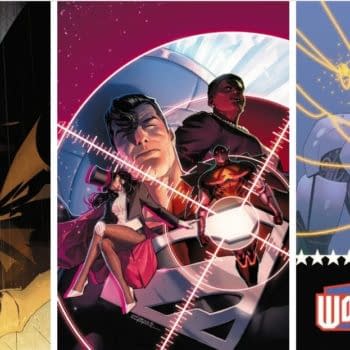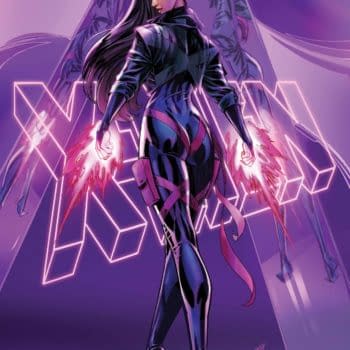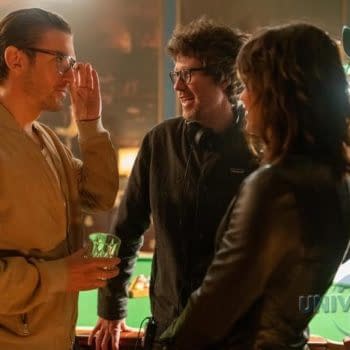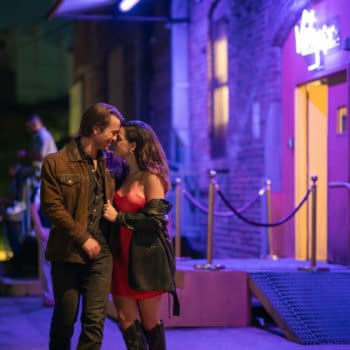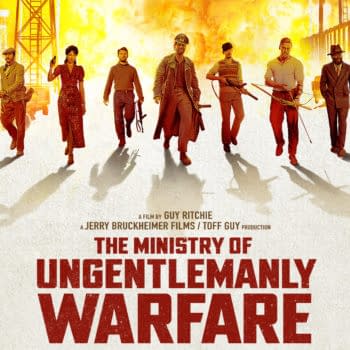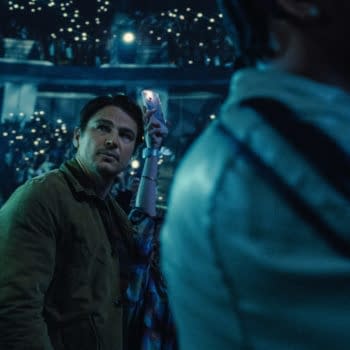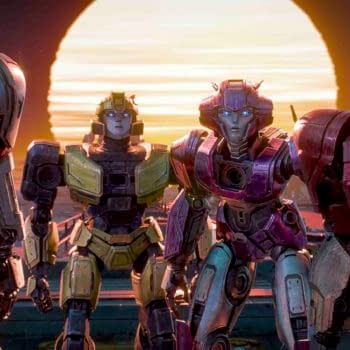Posted in: Look! It Moves! by Adi Tantimedh, Movies | Tagged: entertainment, film
The Mystery Of Hou Hsiao Hsien's The Assassin – Look! It Moves! by Adi Tantimedh
Adi Tantimedh writes,
The Assassin is one of those movies that fall right into the deep end of the arthouse pool, a movie that many people consider beautiful, even sublime, but also mystifying and obscure. People I know who saw it found it baffling, but unable to get it out of their heads, still thinking about it days later. How many movies can stay in the mind for that long after you see them? That's what every filmmaker dreams of achieving.
On paper, the story sounds like a a fairly understandable Wuxia plot: a young noble is kidnapped as a child and trained as an assassin to serve the kingdom, but becomes conflicted when she's ordered to kill her cousin and first love for rebelling against the emperor. This suggests reversals, melodrama, betrayals and heartbreak as a backdrop to elaborate martial arts setpieces, but that's where your expectations hit the wall.
[youtube]https://www.youtube.com/watch?v=YSoXoOAY1zU[/youtube]
Hou Hsiao Hsien is a life-long fan of the Wuxia genre, both the novels and the movies, and had been meaning to make one for his bucket list. He did extensive research into the customs and design of the Tang Dynasty and it shows, but it seems he found that when the time came to write and make the movie, he was actually temperamentally unsuited to the genre, a usually commercial genre dependent on plot and twists. Hou has never been a conventional storyteller. In movies like City of Sadness, A Time to Live and a Time to Die, The Puppetmaster and Goodbye, South, Goodbye, he showed his style was always austere, dwelling on social detail and nuance rather than story, concentrating on the slow passage of time, trying to capture lost moments from history. Like Ozu, he conducted his scenes as painterly tableaus that the characters moved through. If he could make a conventional movie in a commercial genre in the way that we expect in mainstream entertainment, he probably would, but he's resolutely stuck in his unique way of working. With The Assassin, I was told that the genre was so far outside his comfort zone that making the movie was absolutely agonising for him. He's just not wired for it. As a result, the movie doesn't move or feel like a normal Wuxia movie does. The action scenes and fights are abrupt, over in an instance and a body drops, probably closer to how these fights would have been in real life: a swift attack, no wasted movement, and a goal is accomplished. There's none of the elaborate wire-fu setpieces you expect from Wuxia movies. The plot stays almost deliberate obscure with major schemes and machinations apparently taking place behind the scenes, away from the audience's gaze, while in a more conventional director's hands, they would have been absolutely clear and obvious. But I got the feeling Hou wasn't that interested in the melodramatic psychological motivations that drive characters to do what they do in a genre thriller. He's more interested in the moments between plot, between speeches, in the details of the scene and the colours of the room and the landscape. That's where Hou the filmmaker lives while directors like John Woo or Tsui Hark live for the flashes of blades and the mad leap through the air. They love the motion while Hou loves the stillness as he ponders his heroine's tragedy.
And yet… as I watched the movie and wondering if it was really working, if it was being oddly obscure in places where a simple and logical explanation would have been shown in any other director's wuxia movie, there's a strange sense of mystery about it that I can't quite put my finger on, a kind of negative space of the mind. It has gone to another place that movies seldom do because it's place that has no name, only an elusive feeling. It brings to mind the movies of Robert Bresson, whose minimalist approach to filmmaking aimed for a spiritual and ascetic search for transcendence. Bresson was a devout Catholic and used movies as part of his spiritual journey. Hou, while not religious, also uses movies as a way to search for meaning and transcendence, whether in history, in shifting times like the recent past or a 1940s Shanghai brothel, but here he seems to have met his match. His characters are isolated, lost in the landscape, hesitant to speak as if trapped and fighting the roles they're forced to play, the director in direct conflict with his genre and its demand to get a story out.
Maybe The Assassin is a failed exercise in genre, but for all its frustrations and unsatisfying struggle, it's still more interesting than the usual clichéd blockbuster movies the studios trot out with robotic efficiency. Here you're in the grip of a director and his struggles with story, with emotional intimacy and passing time. It feels churlish to even try to review this movie because it feels like a litmus test: you get as much as what you try to give it when you watch it. It's like an interactive dream machine whose buttons and mechanics are hidden from you as you play. And for that, it's fascinating.
Opaque at lookitmoves@gmail.com
Follow the official LOOK! IT MOVES! twitter feed at http://twitter.com/lookitmoves for thoughts and snark on media and pop culture, stuff for future columns and stuff I may never spend a whole column writing about.
Look! It Moves! © Adisakdi Tantimedh


